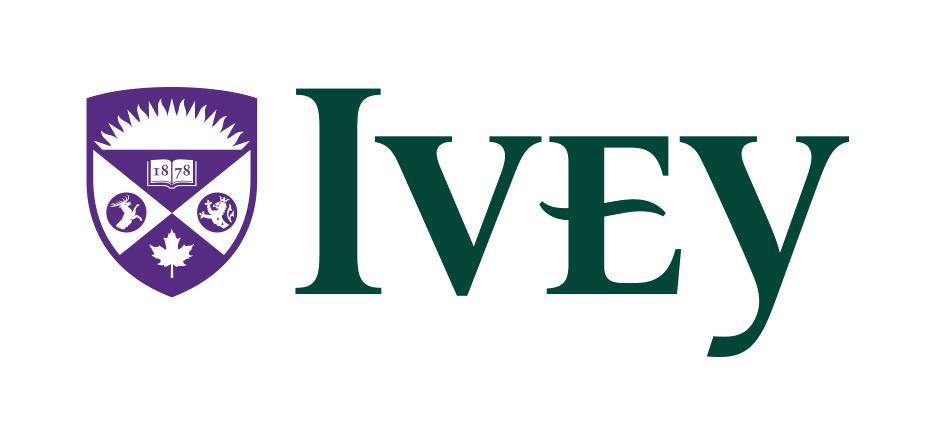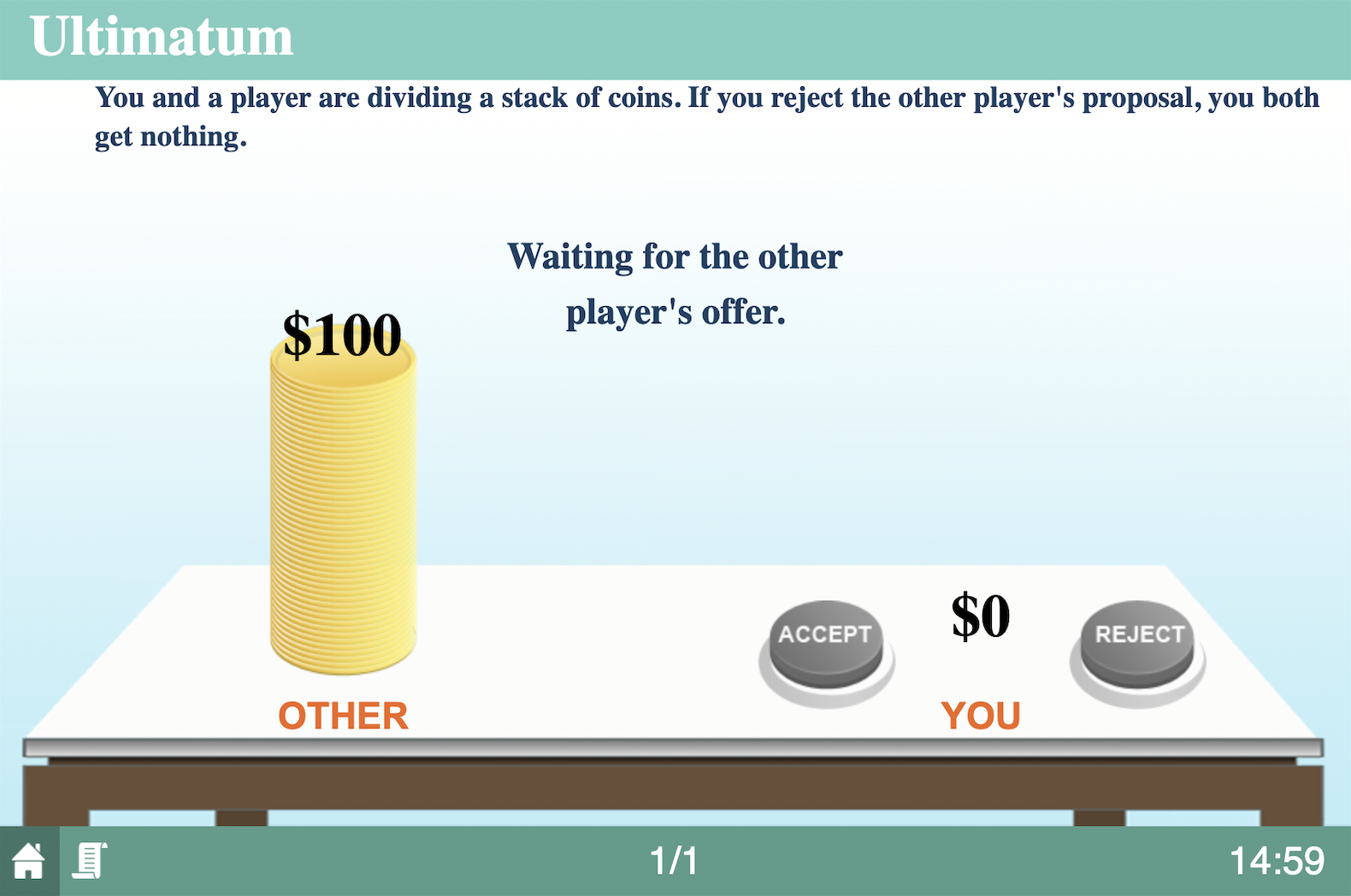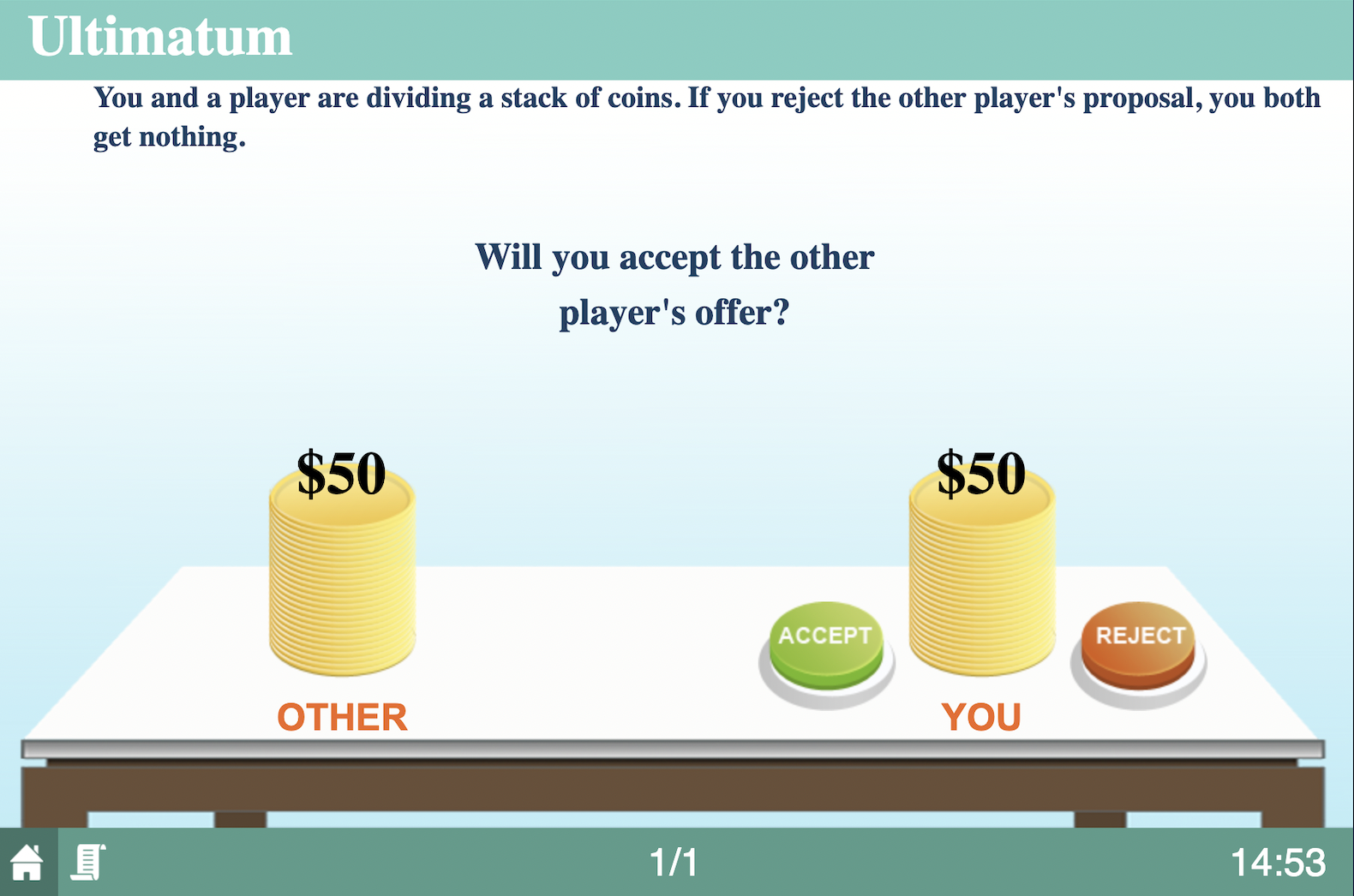Behavioural
Economics
Session 9


Joshua
Foster

Agenda
- MobLab Simulation: Ultimatum Game.
- Objectives of for-profit, non-profit, and social enterprise organizations.
- Case: Daily Bread Food Bank.
Simulation instructions.
- The situation: there is a pool of money that must be distributed between two people.
- What you do: "negotiate" with the other person on how to split the money.
- Your objective: reach a "negotiated" agreement you're satisfied with.
How it works.
- Everyone is randomly grouped into pairs of two.
- Within each pair, one person is randomly assigned the role of Proposer and the other the role of Responder.
- The Proposer begins the game by suggesting a specific split of the money with the Responder.
- Knowing the split suggested by the Proposer, the Responder then either accepts or rejects the split.
How it works.
- If the Responder accepts the split, then the money is distributed as agreed.
- If the Responder rejects the split, then both get nothing.


Questions?
What is the "rational" way to play the Ultimatum Game?
Why might someone deviate from the rational strategy?
Social preferences.
The degree and nature of how individuals care about the outcomes of others.
The ultimatum game reveals distributional preferences.
What is the objective of a for-profit firm?
What is the objective of a non-profit firm?
What is the objective of a social enterprise?
What kinds of challenges do non-profit organizations face that for-profit organizations do not?
What motivates people to make donations to non-profit organizations?
Are there any behavioural aspects to these decisions?
Warm glow giving.
The psychological incentive to act in selfless ways in order to achieve a sense of joy and satisfaction.
Also referred to as impure altruism.
How can non-profits leverage these tendencies?
Hetherington's options.
- Renting out the kitchen.
- Catering social enterprise to businesses.
- Shifts in the kitchen and truck delivery.
- Status quo.
- Other.
Which option best leverages impure altruism?Which option should Hetherington pursue?
Small gifts work: Falk (Econometrica, 2007)
- ~10,000 charity mailings randomized to no gift, small gift, or large gift.
- Donation rates ↑ +17% (small) and +75% (large) vs. control.
- Campaign remained revenue net-positive when premiums were low-cost (e.g., postcards).
Why it works: activates reciprocity, draws attention to the ask, and triggers warm-glow satisfaction—lowering the psychological barrier to act.
Yoon & Woolley (2024)
- Field test with ~22,000 alumni.
- Small, salient thank-you gifts (<$3) increased donations among lapsed/low-motivation donors.
- No change in giving among core donors.
Key Takeaways.
- Distributional Preferences:
- The Ultimatum Game reflects how individuals value resource allocation for themselves and others.
- Warm Glow Giving:
- Psychological incentive driving selfless actions for joy and satisfaction, essential in understanding donation motivations.
- Behavioral Tendencies in Non-profits:
- Leveraging warm glow giving can enhance fundraising strategies and organizational objectives.